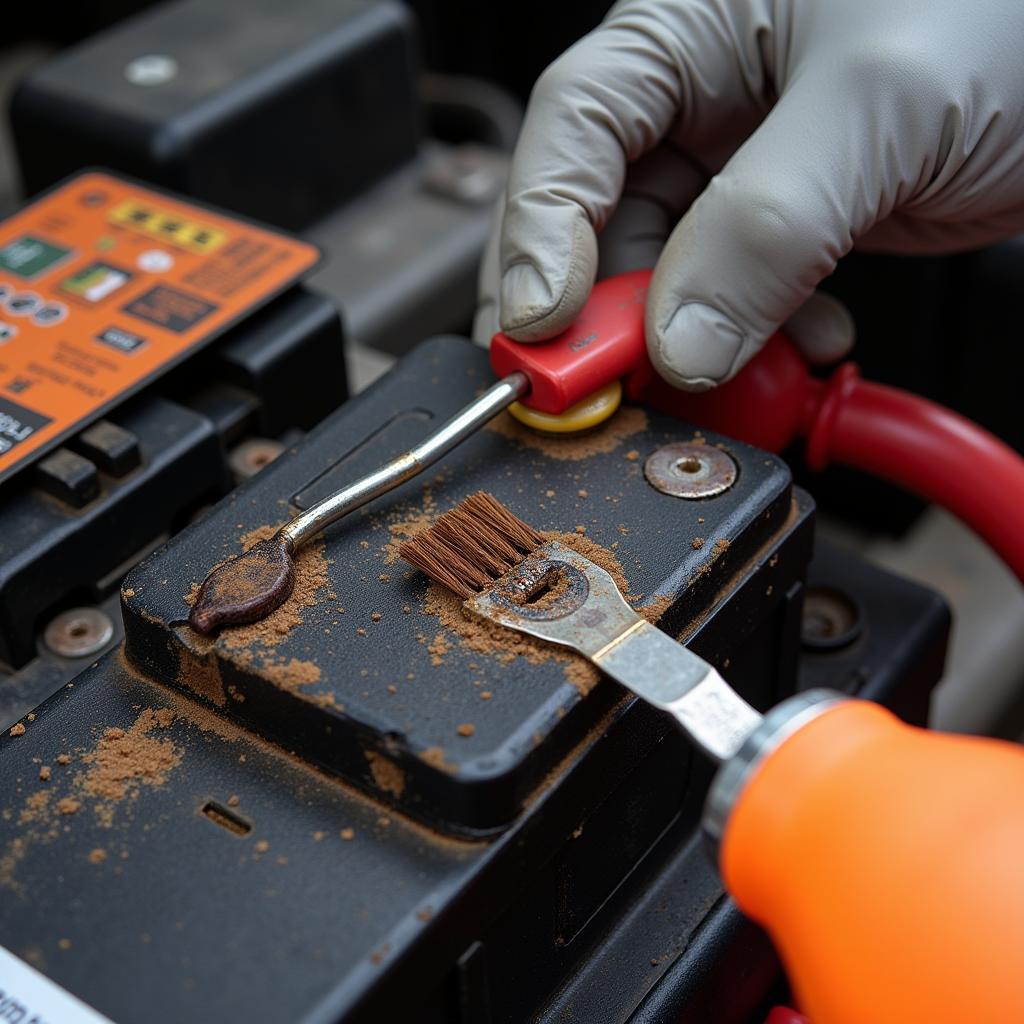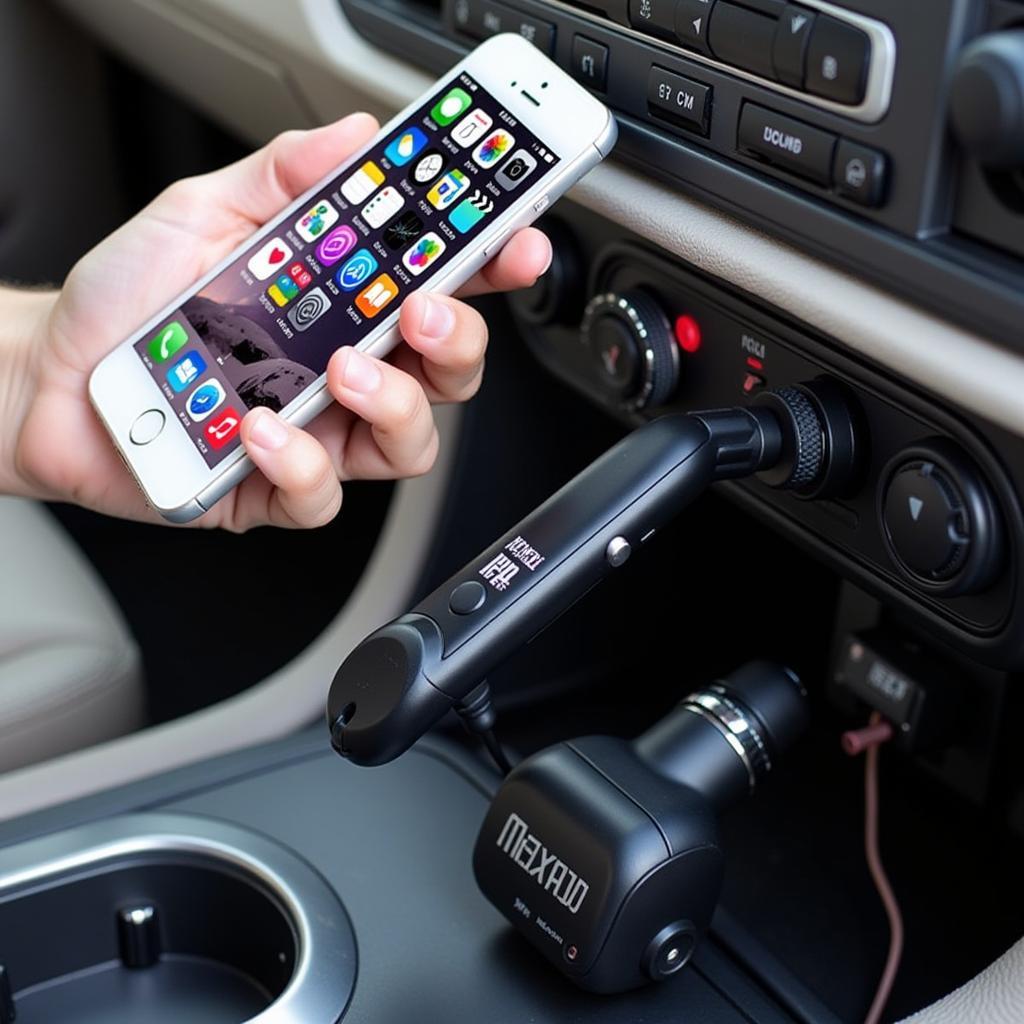Car battery problems can leave you stranded and frustrated. Knowing how to diagnose these issues can save you time, money, and a lot of hassle. This guide provides a comprehensive approach to diagnosing car battery problems, from the simple to the more complex.
Common Signs of a Failing Car Battery
Several symptoms can indicate a failing car battery. These include slow engine cranking, dimming headlights, clicking sounds when turning the key, and electrical malfunctions. A malfunctioning car battery can also trigger warning lights on your dashboard. Ignoring these signs can lead to more significant problems down the road.
One common sign is a slow engine crank. If your engine turns over slowly or struggles to start, it could signify a weak or dying battery. Dimming headlights, especially when idling or at low RPMs, also indicate a battery problem. Clicking noises when you turn the key usually mean the battery doesn’t have enough power to engage the starter motor.
How to Diagnose Car Battery Problems Yourself
 Cleaning car battery corrosion
Cleaning car battery corrosion
Diagnosing car battery problems often starts with a visual inspection. Check the battery terminals for corrosion. White, powdery buildup indicates corrosion, which can interfere with the electrical connection. Clean the terminals with a wire brush and a baking soda solution. After cleaning, apply a protective coating to prevent future corrosion.
Next, test the battery voltage using a multimeter. A fully charged battery should read around 12.6 volts. A reading below 12.4 volts indicates a low charge, and a reading below 12 volts signifies a dead battery.
You can also perform a load test. This test measures the battery’s ability to hold a charge under load. A load test is typically done with a specialized tool available at most auto parts stores.
When to Seek Professional Help
While some battery problems can be diagnosed and fixed at home, others require professional assistance. If you’re uncomfortable working with car electrical systems or suspect a more complex issue, it’s best to consult a qualified mechanic. They have the tools and expertise to diagnose and repair more complicated problems, including issues with the alternator or starter.
Why is My Car Battery Dying Repeatedly?
A car battery that repeatedly dies can be due to various factors, including a faulty alternator, parasitic drain, extreme temperatures, old age, or even leaving lights on accidentally. A professional can pinpoint the exact cause using diagnostic tools.
Using Remote Diagnostics for Car Battery Issues
Modern technology allows for remote diagnostics of some car battery problems. Specialized software can access vehicle data and identify potential issues with the battery or charging system. This can save time and money by allowing for quicker diagnosis and targeted repairs.
“Remote diagnostics is becoming increasingly important in the automotive industry,” says John Smith, Senior Automotive Engineer at AutoTech Solutions. “It allows us to identify problems quickly and efficiently, often without the need for a physical inspection.”
Preventing Future Car Battery Problems
Regular maintenance can significantly extend the life of your car battery. This includes keeping the terminals clean, checking the battery voltage periodically, and ensuring the charging system is functioning correctly. Avoid short trips, as they don’t allow enough time for the alternator to fully recharge the battery.
“Proper battery maintenance can prevent many common problems,” says Jane Doe, Lead Technician at AutoCare Center. “Simple steps like cleaning terminals and checking the voltage regularly can make a big difference.”
Conclusion
Diagnosing car battery problems requires a systematic approach, from visual inspections to voltage and load testing. While DIY diagnosis and repair are possible in some cases, professional help is often necessary for complex issues. Regular maintenance and understanding the symptoms of a failing battery can help prevent future problems and keep your car running smoothly. Remember to address any car battery issues promptly to avoid being stranded.
FAQ
-
How long does a car battery typically last? Most car batteries last between three and five years.
-
Can I jump-start a car with a completely dead battery? Yes, but it may require multiple attempts and a longer jump-starting time.
-
What causes a car battery to drain overnight? A parasitic drain, a faulty alternator, or leaving lights on can cause a battery to drain overnight.
-
How can I tell if my alternator is bad? Signs of a bad alternator include dimming headlights, flickering dashboard lights, and a dead battery.
-
Is it safe to drive with a bad car battery? It’s not safe to drive with a bad battery as it can lead to unexpected breakdowns.
-
What is the difference between a car battery and a deep-cycle battery? A car battery is designed for short bursts of high power, while a deep-cycle battery is designed for continuous low-power discharge.
-
How much does it cost to replace a car battery? The cost varies depending on the type of battery and the vehicle, but it typically ranges from $100 to $300.

